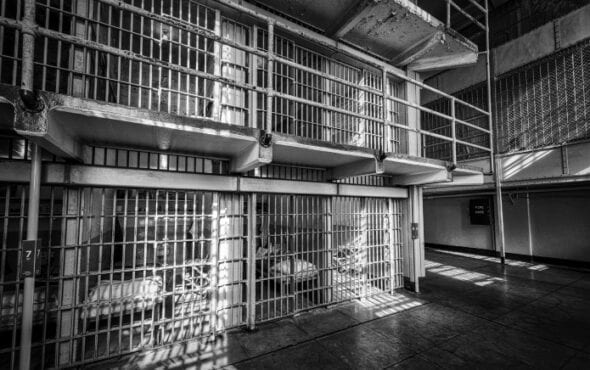
The US Justice Department has announced plans to review policies regarding transgender inmates.
According to a report from The Associated Press (AP), the Bureau of Prisons’ (BOP) and their policies are expected to be reviewed after Emily Claire Hari – who identities as transgender – was sentenced to 53-years in prison.
Hari, who was the leader of an anti-government group, was convicted for the 2017 bombing of Dar al-Farooq Islamic Center in Bloomington Minnesota.
With Hari’s sentencing in place, her housing within the federal prison system will be determined by the Bureau of Prisons’ Transgender Executive Council.
The group, which was introduced by the Trump administration, is made up of ten people that includes two psychologists, a psychiatrist and prison designation experts.
But unlike the Obama era policy, which “recommended housing by gender identity when appropriate”, the current guidelines require the council to “use biological sex as the initial determination.”
An inmate’s health and safety, history of disciplinary action and the security level of the potential federal prison are also considered when assigning a trans inmate to a prison.
Since Hari has already been sentenced, time is of the essence for the Transgender Executive Council to decide which out of the 122 prisons the 50-year-old will be placed in.
In a statement to the AP, the Justice Department revealed that the bureau is “committed” to supplying safe housing for all inmates.
“Including providing gender-affirming housing where appropriate. BOP is in the process of reviewing the current version of its policy regarding transgender inmates,” they said.
The small amount of high-security federal prisons for female inmates is also expected to play a part into Hari’s placement.
Over the years, the housing and treatment of trans inmates has been a longstanding issue within the federal prison system.
A report from Lambda Legal revealed nearly one in six trans Americans – and one in two Black trans people – have been in prison.
Once inside, trans inmates are often denied access to “transition-related health care” and are subjected to violence and abuse by both inmates and prison staff.



